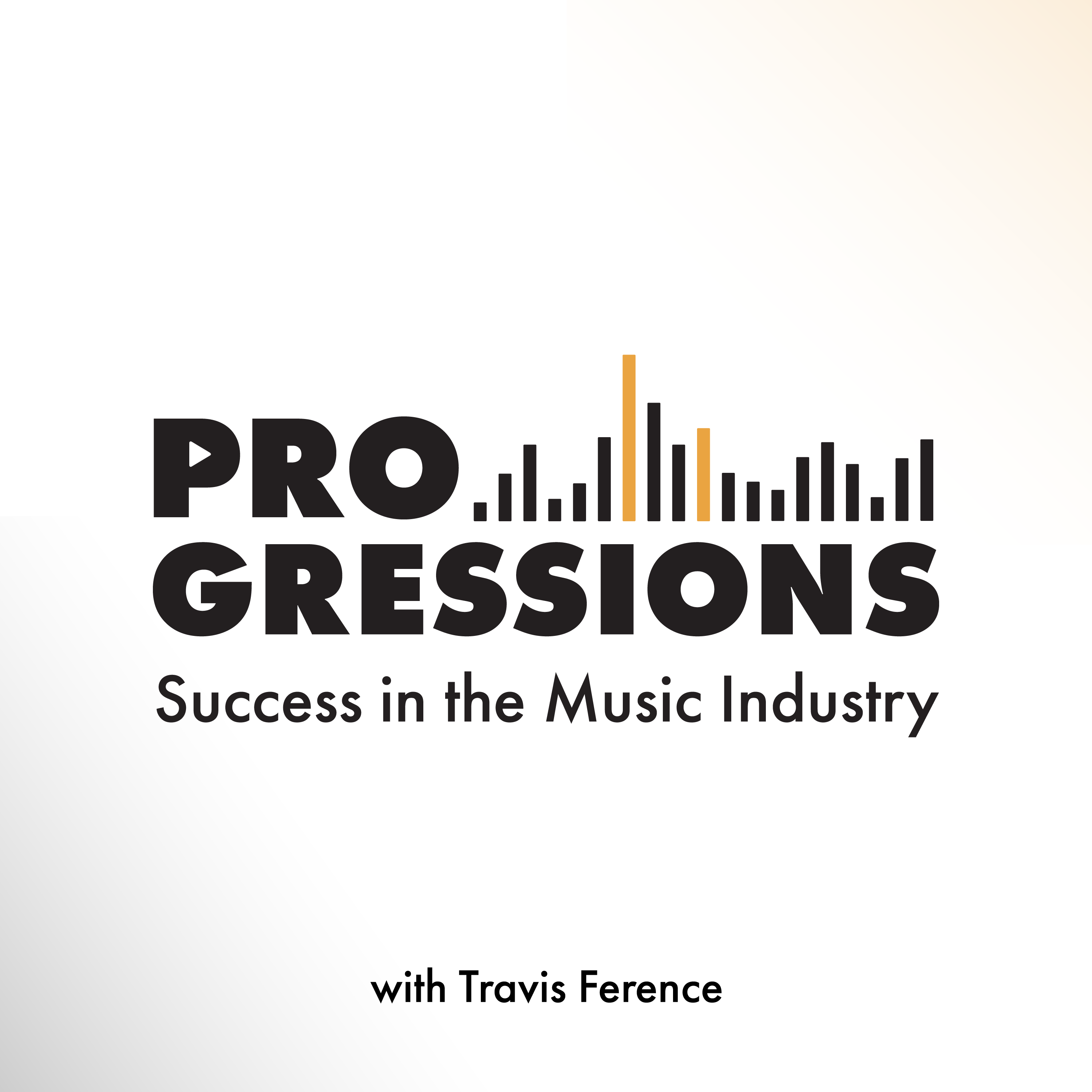3 Signs You NEED to Be Freelance
Travis discusses why he quit every staff engineering gig he had and how to know that you're ready to go freelance as a recording engineer, mixer, or producer.
⬇️ FREE 2025 PLANNING WORKSHOP ⬇️
https://www.travisference.com/2025plan
📺 WATCH THE SHOW ON YOUTUBE 📺
https://www.youtube.com/@progressionspod
Connect with Me:
📬 Newsletter: https://www.travisference.com/subscribe
📸 Instagram: https://www.instagram.com/progressionspod
🎵TikTok: https://tiktok.com/@progressionspod
🐦 Twitter: https://twitter.com/progressionspod
🌐 Website: https://www.travisference.com/
🙏 Leave a Review or Rating 🙏
Apple: https://www.progressionspodcast.com/apple
Spotify: https://www.progressionspodcast.com/spotify
📢 Our Sponsors 📢
Listen to Secret Sonics!
Sign Up for Complete Producer Network!
Credits:
Guest: N/A
Host: Travis Ference
Editor: Travis Ference
Theme Music: inter.ference
Transcript
I want to make this video for. A while because I know how important going
Speaker:freelance was for me. It absolutely changed my life. It could
Speaker:change yours, too. And so because of that, I've bounced a lot of versions of
Speaker:this around in my head, felt the pressure to make the perfect video.
Speaker:But I think the reality is that I just need to share this because I
Speaker:think it'll be valuable to somebody, even in an imperfect form.
Speaker:Welcome back to the show. I'm Travis Farents, a Grammy nominated recording engineer and mixer.
Speaker:And today we're talking about why I've quit every gig I've
Speaker:ever had. So I spent almost six years as a staff engineer at
Speaker:Capital Studios in Hollywood, an absolute, legendary, classic
Speaker:recording studio. And I also worked on staff for several independent producers.
Speaker:And don't get me wrong, all these gigs are dream gigs for
Speaker:anybody, including me. And I did love them. But my goal was always
Speaker:to be a freelance engineer and mixer, which I've now been fortunate enough to do
Speaker:for. The last six years. So if that's your goal as well, stick with me,
Speaker:because we're gonna talk about why I quit these gigs and how to know if
Speaker:you're also ready. To make that jump to being a. Freelance engineer or
Speaker:producer. But before we get into all this quitting. Right. Let's briefly talk about
Speaker:why a staff engineer gig is such an amazing launching. Point for a
Speaker:career. So when you're a staff engineer, you start at the bottom. You
Speaker:are essentially assigned mentors because you get to work alongside people that
Speaker:have. Done this for years, if not decades. A great
Speaker:studio is great because of the staff, and those veterans
Speaker:know that. So they are always ready to pass down their knowledge to you,
Speaker:which is amazing. And you're not just going to learn from the staff.
Speaker:A studio is a rotating door of people. You get the chance to work with.
Speaker:So many different artists, engineers, producers. You'll get to see
Speaker:different styles of production, different micing techniques, different
Speaker:workflows. You'll probably work on everything from rock to pop
Speaker:film scores to tv commercials. You'll see film shoots live in
Speaker:studio performances. I mean, I could go on forever, obviously. You name it, it's
Speaker:probably going to happen. If you work in one of these big rooms, the wide
Speaker:range of things. That you'll be exposed to will help. You learn what you like
Speaker:and what you don't like. And the more things you experience, the more options you
Speaker:might see for your future. Right? You may have started in this business thinking you
Speaker:wanted to record rock bands and then one day work on a film score and
Speaker:realize that that's actually what you want to pursue now. That same wide
Speaker:range of experiences that's helping you figure out what you want to do. It's
Speaker:also shaping your sonic tastes. You'll pluck different tricks
Speaker:from different sessions and different people, and over time,
Speaker:you'll start to build that palette, that is your sonic
Speaker:preferences, and that will give. You your own unique style. And finally, that
Speaker:same rotating cast of characters I mentioned earlier, they will become your
Speaker:client base. Because it's important, even as a staffer. To think of
Speaker:the people you work. With as your clients. Having people
Speaker:remember that they enjoyed working with you and to request to work. With you again
Speaker:is one of the. First indications you'll get that you're doing something right,
Speaker:something that could carry over. To a freelance career. So by now, you're
Speaker:probably asking yourself, if being a staff engineer is so great,
Speaker:why would you quit? Well, earlier I said that I had
Speaker:quit working at Capital Studios, which was a little bit of a lie, because
Speaker:I actually quit twice. And so I started my career
Speaker:there. As a runner, the classic entry level position. Right?
Speaker:After a few years, I realized that because it was such a great
Speaker:gig, there was not a lot of movement, people were not leaving anytime
Speaker:soon, and I wasn't going to wish death upon any of my buddies. So when
Speaker:an opportunity to go work for an independent producer came up, I took it. Now,
Speaker:I was grossly underqualified for the job at the time,
Speaker:but I was. Good enough to get by. And I think the guy saw an
Speaker:opportunity to shape a young engineer to do things the way that he
Speaker:wanted them done. So we did a lot of music for film and tv, a
Speaker:few big Disney projects, and a whole slew of songwriting sessions, all mostly
Speaker:pop. And I was constantly given
Speaker:new responsibilities, and if I handled those well, then he would just give
Speaker:me more. And so it got to the point. Where I was recording, editing, and
Speaker:mixing every project we did, unless the label wanted a fancy name
Speaker:mixer. And it was great. I loved all of it. It was
Speaker:amazing. Until I started to feel
Speaker:unchallenged. We had such a routine in the way that we
Speaker:worked that every day started to feel the same. Every EQ move started to
Speaker:feel the same. The guitar sounds were the same, the vocal chain was the same.
Speaker:Everything was the same. And when I felt
Speaker:like I was starting to just go through the motions, I started to think that
Speaker:maybe it was time for a change. Because careers are about growth,
Speaker:and growth. Comes from being challenged. I'm a big believer that when you.
Speaker:Stop learning and you stop being challenged, you start to get
Speaker:frustrated, and you may not identify exactly why you're feeling that
Speaker:way, but it's because you're not growing. And this
Speaker:is why I left capital the first time. I saw more potential for growth by
Speaker:leaving, so I did. And when I felt that growth start to slow down,
Speaker:I started looking for other opportunities. So if you're feeling this in your career
Speaker:right now, I encourage you to look for a way to grow. Maybe that growth
Speaker:is from moving on to be freelance, or maybe it's not quite time yet, because
Speaker:it is a big jump. And in my case, it was
Speaker:not quite time. It was instead time to go back to
Speaker:capital. So I leveraged my years of pop vocal recording and mixing to get
Speaker:rehired, but this time as a staff engineer. So they were expanding
Speaker:the facility to have a few rooms dedicated to vocals and overdubs, and
Speaker:hence were hiring more people. So it was perfect. It gave me the growth and
Speaker:challenge I was looking for, and it put me back in the mix of different
Speaker:experiences and different people. But over those
Speaker:next six years, I'd find that there was something else that was missing that would
Speaker:eventually drive me to quit again. I think it's safe to say that
Speaker:what drew most of us into music to begin with was the
Speaker:ability to express ourselves. For me, it was playing what I thought was cool
Speaker:on guitar in my bedroom all night. Just turns out that I was a horrible
Speaker:guitar player. But in the studio, I can still have that creative
Speaker:expression, especially when I'm mixing. And that's what I
Speaker:lost when I returned to capital. I was engineering great sessions, but I wasn't
Speaker:mixing. And most of the engineering I was doing was the same one
Speaker:mic, one player overdub engineering that I had been doing before. Now
Speaker:I was for sure being challenged. The stakes were often higher. The artists
Speaker:were usually bigger. But because of that, I didn't have the
Speaker:freedom to always do what I wanted. Nor did I have the freedom to choose
Speaker:the projects I wanted to do or to work the way I wanted. And these
Speaker:things didn't bother me at first. I knew the gig I was taking when I
Speaker:took it, and I loved it. But as I grew more and I got
Speaker:better at my craft, I started to crave that choice.
Speaker:I wanted to develop my own sound and build my own credit list with. The
Speaker:artists that I wanted to work. With, things that every engineer
Speaker:wants to do right, but they're also things that are generally out of your control
Speaker:if you're on staff somewhere. So if you feel like
Speaker:you've grown your skills to the point that you want to be making records your
Speaker:way with the people you love working with, then
Speaker:you're right where I was at this point. And I think this is one of
Speaker:the biggest telltale signs that you might be ready to be
Speaker:freelance. Because this feeling of not having the freedom to do what you
Speaker:want, it's rooted in the fact that you've developed your musical
Speaker:identity to the point that you have to live it. And it's that kind of
Speaker:confidence that you need to be a freelancer. So what did I do?
Speaker:I quit. I quit capital again. But yet
Speaker:again, it was not to go freelance, which, looking back on, was
Speaker:a mistake. I should have made the plunge, but I had to do one
Speaker:more gig. And learn one more lesson. So, like a broken record, I
Speaker:left capital to work for a producer. I was hired to run his label, Studios,
Speaker:which on paper was an amazing gig, but in reality, it was not what I
Speaker:wanted to do at all. And so I ended up doing this little side quest
Speaker:for, like, six or eight months before finally realizing it was time to be
Speaker:working for myself. Because despite the fact that I was running two rooms
Speaker:and managing small staff, I somehow still felt unchallenged in this
Speaker:gig. And even though I was in charge of the studios, I still
Speaker:felt a lack of freedom. And this is when I realized that the true
Speaker:core of my frustrations, the thing that had been festering behind the scenes,
Speaker:is that I'd lost sight of my goals. That first time I quit
Speaker:capital was the only time I was working towards the goal I mentioned in the
Speaker:beginning of being a freelance engineer and mixer. All the
Speaker:other choices I made after that were based on chasing credits or making
Speaker:money. I was trying to gig hop into bigger records and waiting
Speaker:for those credits to miraculously get me mix work, even though they were
Speaker:engineering credits. Id mixed for years on the side. But when
Speaker:youre on staff, you only have so much free time. And yes, I was making
Speaker:a living working in music, but I was not working towards the things I wanted
Speaker:to work towards. And that realization that I had been out of
Speaker:alignment with my goal for. So many years was the final catalyst in going
Speaker:freelance. So if you're still watching and you feel these things, you feel
Speaker:that you are unchallenged and not growing and that you don't have the freedom to
Speaker:be who you want to be artistically and that what you're doing is not in
Speaker:alignment with your goals, then I encourage you to change that. And
Speaker:it might be that going freelance. Could be the answer. You're looking for.
Speaker:And if it is, and the thing that's holding you back is not knowing
Speaker:what to charge, then check out this video I did about how to set your
Speaker:rates.


